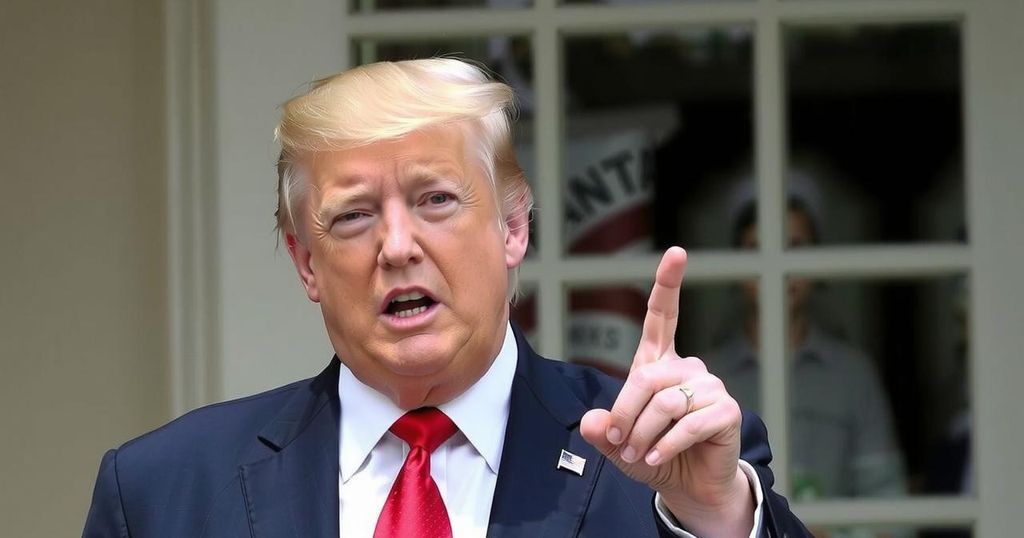Trump’s Approach to the Syria Crisis: Challenges and Non-Interventionism
President-elect Donald J. Trump will enter office facing a crisis in Syria, a country largely controlled by rebel factions with terrorist affiliations. His apparent preference for a non-involvement approach reflects his long-standing criticism of U.S. military intervention in the Middle East. With significant influence from his advisors and a potential new national intelligence director opposed to U.S. intervention, how Trump will handle the situation in Syria remains uncertain.
As President-elect Donald J. Trump prepares to take office in January, he will confront a significant crisis in the Middle East, particularly in Syria. The situation remains precarious, as the country is predominantly controlled by factions with links to terrorist organizations. There is much speculation regarding Mr. Trump’s potential strategy, which may be influenced by intense debates among his advisors and global leaders over the coming months.
Historically, Mr. Trump has expressed a clear disinterest in Syria, dismissing it as a region fraught with chaos—labeling it a land of ‘sand and death.’ He has consistently criticized U.S. military interventions in the Middle East, particularly the overthrow of dictators such as those in Iraq and Libya. His recent social media comments reflect a desire for the United States to disengage from Syria, as he branded the situation a mess and distinctly proclaimed that it is not America’s fight.
Support for this non-interventionist perspective is also present among Trump’s inner circle, including Vice President-elect JD Vance, who aligns with Trump’s critiques of foreign policy overreach. In a notable move, Mr. Trump has nominated former Democratic Congresswoman Tulsi Gabbard as his director of national intelligence. Gabbard has long advocated for an end to U.S. involvement in the ongoing Syrian civil conflict, emphasizing the importance of non-engagement in such disputes.
Since the onset of the Syrian civil war in 2011, the country has been engulfed in violence, leading to a complex humanitarian crisis and a power vacuum. Various groups, including extremist factions, have taken control of significant portions of Syria. The potential shift in U.S. policy under President-elect Trump could radically alter the dynamics in the region, as he appears intent on avoiding military involvement and seeks to prioritize domestic concerns over foreign entanglements. This context is essential in understanding the current discourse around Trump’s foreign policy approach, particularly regarding Syria’s future.
In conclusion, President-elect Donald J. Trump is poised to navigate a challenging and volatile situation in Syria upon assuming office. His inclination towards a non-interventionist policy, influenced by his previous statements and the perspectives of his advisors, suggests a significant departure from past U.S. strategies in the Middle East. How this will translate into concrete policies remains to be seen, but it signals a critical moment in U.S. foreign relations and its approach to conflicts abroad.
Original Source: www.nytimes.com




Post Comment